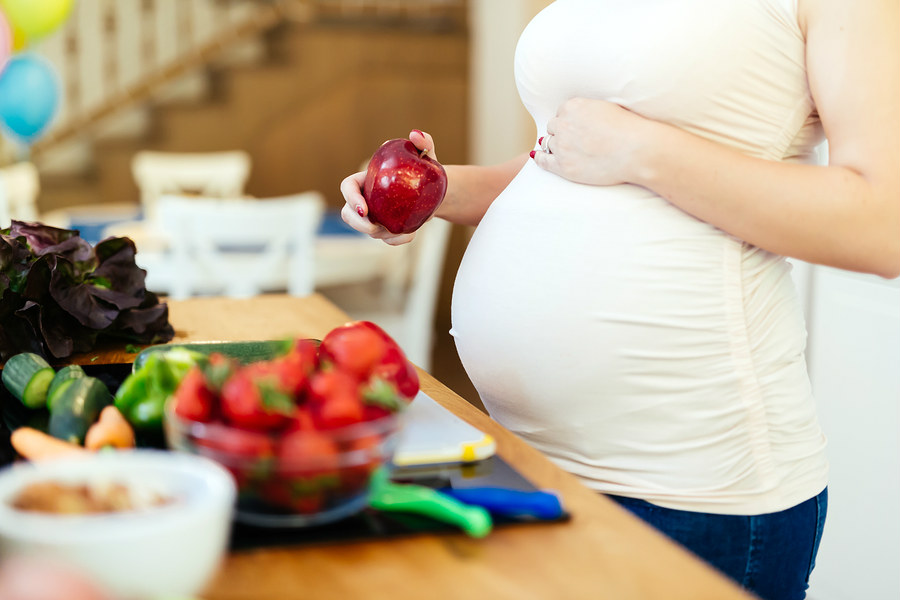Prenatal health is extremely important for the overall health and development of a growing baby. As a expectant mother, it’s crucial to pay attention to your own health and nutrition to ensure that you’re providing the best possible environment for your baby to thrive. Here are some tips for boosting prenatal health and a list of 12 healthy foods to include in your diet:
- Take a prenatal vitamin: Prenatal vitamins are specifically formulated to meet the increased nutritional needs of pregnant women. They contain important nutrients like folic acid, iron, and calcium, which are essential for fetal development.
- Get enough calories: Pregnancy is a time of rapid growth and development, so it’s important to make sure you’re getting enough calories to support your growing baby. Aim for at least 2,200 calories per day, but this may vary depending on your individual needs and activity level.
- Stay hydrated: Proper hydration is important for both you and your baby. Aim for at least 8-12 cups of fluids per day, and choose water, milk, and other non-caffeinated beverages whenever possible.
- Eat a varied and balanced diet: A healthy pregnancy diet should include a variety of foods from all food groups. Aim for at least 5 servings of fruits and vegetables per day, 3 servings of protein (such as lean meats, poultry, fish, beans, and tofu), 6-8 servings of grains (such as whole grains, bread, pasta, and rice), and 2-3 servings of dairy (such as milk, yogurt, and cheese).
- Avoid certain foods: Some foods are not safe to eat during pregnancy due to the risk of food poisoning or other health risks. These include raw or undercooked meats, fish, and eggs; unpasteurized milk and cheese; and certain types of deli meats and hot dogs. It’s also important to avoid caffeine and alcohol during pregnancy.
- Get enough sleep: Getting enough sleep is important for overall health, and it’s especially important during pregnancy. Aim for at least 7-9 hours of sleep per night to help support your growing baby and maintain your own energy levels.
- Exercise regularly: Regular exercise is important for maintaining good health during pregnancy. It can also help reduce the risk of complications like gestational diabetes and preterm labor. Talk to your healthcare provider about what types of exercise are safe for you during pregnancy.
Now, onto the list of 12 healthy foods to include in your prenatal diet:
- Leafy greens: Leafy greens like spinach, kale, and broccoli are packed with nutrients like folic acid, iron, and calcium, which are important for fetal development.
- Sweet potatoes: Sweet potatoes are a great source of complex carbohydrates, which provide sustained energy throughout the day. They’re also high in beta-carotene, a precursor to vitamin A, which is important for fetal eye development.
- Berries: Berries like strawberries, raspberries, and blueberries are high in antioxidants, which can help protect against oxidative stress and inflammation. They’re also a good source of fiber and vitamin C.
- Avocado: Avocado is a good source of healthy fats, which are important for fetal brain development. It’s also high in potassium, which can help regulate blood pressure and prevent leg cramps.
- Nuts and seeds: Nuts and seeds like almonds, chia seeds, and flaxseeds are a good source of protein, healthy fats, and essential vitamins and minerals. They’re also a good source of fiber, which can help with digestion and prevent constipation, a common pregnancy complaint.
- Eggs: Eggs are a great source of protein, choline, and other important nutrients like vitamin D and zinc. Choline is especially important for fetal brain development.
- Legumes: Legumes like beans, lentils, and chickpeas are a good source of protein, fiber, and a variety of essential vitamins and minerals. They’re also low in fat and cholesterol, making them a heart-healthy choice.
- Oily fish: Oily fish like salmon, sardines, and mackerel are high in omega-3 fatty acids, which are important for fetal brain and eye development. They’re also a good source of protein and other essential nutrients.
- Greek yogurt: Greek yogurt is a good source of protein and calcium, which are both important for fetal bone development. It’s also high in probiotics, which can help support a healthy gut.
- Whole grains: Whole grains like whole wheat bread, quinoa, and brown rice are a good source of complex carbohydrates, fiber, and a variety of essential vitamins and minerals. They’re also a healthier choice than refined grains, which are stripped of many of their nutrients during processing.
- Lean protein: Lean protein sources like chicken, turkey, and tofu are important for fetal growth and development. They’re also a good source of iron, which can help prevent anemia during pregnancy.
- Dried fruit: Dried fruit like apricots, prunes, and raisins is a good source of fiber, iron, and other essential vitamins and minerals. It’s also a convenient and portable snack option.
By incorporating these healthy foods into your prenatal diet and following the other tips for boosting prenatal health, you can help support the healthy development of your growing baby. Remember to always consult with your healthcare provider before making any changes to your diet or lifestyle during pregnancy.




